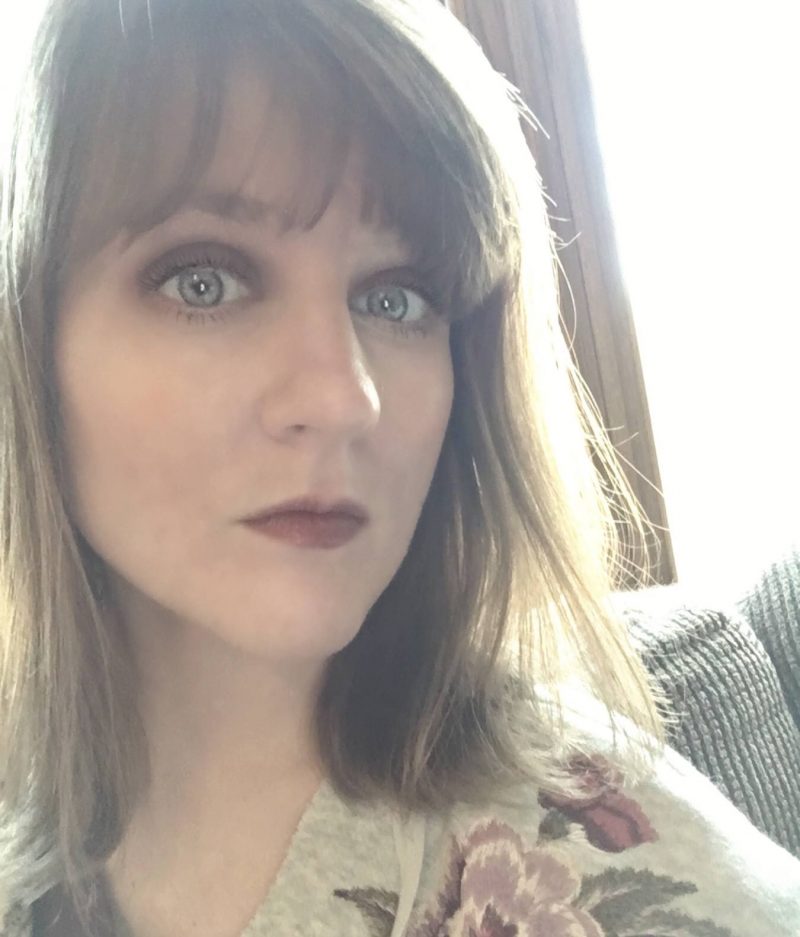Tips for Surviving Depression
(From Someone Who’s Been There, Done That)
When I was diagnosed with clinical depression, I was seven years old. Up until that point, my teachers had expressed concern over my lack of verbal communication in school; I rarely spoke in class or to my peers. During recess, I sat alone on the swing set, watching other kids play tag and build forts in the woods behind my school. Even though I desperately wanted to join them, something held me back. I carried with me an overwhelming sense of worthlessness, and feared that everyone around me would eventually see how unworthy of love and attention I was. They would hate me or grow bored of me, so I remained quiet and out of the way. At an age where children should be making friends and learning about the world around them, I wanted to disappear.
As it turns out, social withdrawal and an absence of self-worth are common symptoms of childhood depression. These feelings aren’t always brought on by a specific event or trauma. I’ve had therapists ask what happened to me as a young child to cause the things that were going on in my head. The truth is this: nothing. My childhood was the typical suburban American dream, and my parents were nurturing and loving towards my siblings and me. I have since settled on the conclusion that I simply have a brain chemistry with a proclivity for mental illness. In other words, I have genetics to thank for all of this.
Today, at age twenty-nine, I am still not cured of my depression, and probably never will be. There are times when I still struggle with my self-worth, but I have learned how to manage my thoughts in a healthier way. I no longer have a sense of impending doom hanging over my head all of the time, and I can function like a “normal” person most days. Yes, I have gone through my fair share of medications, hospital stays, and utterly dark and hopeless periods of time, but I always seem to come out okay when the storm passes. That being said, I have compiled a list of things that have helped me deal with depression over the past twenty-something years. Some of these things may seem like common knowledge, but I’ll mention them just to reiterate their importance.
Try medication. If you’ve been feeling down and out for an extended period of time (this would be a little more than, say, a post-breakup broken heart), one of the first steps I recommend taking is visiting your primary doctor. He or she can perform a screening to determine if you are exhibiting signs of clinical depression, and hopefully lay out some options when it comes to medication. Antidepressants are not a fix-all solution, and they can take up to a month to work, so don’t expect a total life transformation right away. Once you find the right one, however, it can drastically improve your mood. It took me many rounds of trial-and-error to find the medication that worked best for me, but I undoubtedly notice a difference when I’m on it as opposed to when I’m not. Antidepressants are one of the main reasons why I’m able to function normally from day to day, and they have helped thousands of other people get their lives back.
Don’t self-medicate. Just don’t do it. Abusing prescriptions or using alcohol or drugs to feel better in the moment is a recipe for disaster. Many of us who have mental illnesses are hardwired to seek instant gratification and not think about the outcome, which is how addictions form. I have first-hand experience with this; my mother died from alcoholism shortly after her fifty-second birthday. I have also gone through my own battle with substance abuse. Alcohol is actually classified as a depressant, so consuming it while depressed will just set you further back when the initial buzz wears off. These chemicals may help alleviate stress and sadness for a few hours, but they don’t fix the underlying problem. It’s like putting a band-aid on a bullet wound: senseless and, eventually, deadly.
Get up. Even if you have been holed up inside and haven’t seen the sun in ten days, get out of bed. Take a shower. Get dressed, even if you have nothing planned for the rest of the day. Even at my lowest point, I would force myself to get ready for the day. It just gave me that little bit of extra motivation to accomplish something and feel better about myself.
Avoid social media. There’s something about seeing the highlight reel of everyone else’s life that can make us feel unaccomplished and even worse than we already do. Yet, we do it anyway. We check Facebook and Twitter and Instagram and every other platform that we have directly at our fingertips. It’s a harsh truth that this is how much of the world stays connected today. Comparing ourselves to others, though, isn’t healthy. Disconnect for awhile. Log off of Facebook and delete Twitter off of your phone. Focus on yourself for a while, not the never-ending feed of engagement pictures and pregnancy announcements. It’s okay, the internet will still be there if and when you need it again.
Have a support system. One of the main side effects of depression is isolation. When I was depressed, all I wanted to do was be alone. I wanted to wake up alone, eat alone, sit alone in my room, and go to bed alone. Since I’m already introverted, it was easy for me to cut myself off from the rest of the world and cancel plans in order to lay in my bed for hours and stare at the ceiling. Since both of my parents died before I turned twenty-four, I felt like there was really no one who could understand my struggle and support me. It’s crucial that we do have those people in our lives, though, and they are not always going to come to us. Not everyone understands what is going on in our heads. Make a list of people you can call and talk to if things get bad. Go to lunch or do an activity that you enjoy. Having even just one friend or family member that truly cares will make you feel a little less alone.
Try therapy. Talking to a professional about your thoughts is important, and can give you a better perspective on your situation. Like antidepressants, finding the right therapist for you is a whole lot of trial-and-error. I had a several different therapists while I was growing up, but didn’t find the one I currently see until my last year of college. Having one hour out of every week just to unload everything that’s been collecting in my head is crucial to my own mental health. And, unlike conversing with friends or family, a therapist is there to focus on you and you alone, so you never have to worry about talking someone’s ear off. Their job is to listen to you, help you sort out your thoughts, give advice, and ultimately make your life easier.
Be compassionate towards yourself. Don’t hate yourself if you can’t get out of bed today. It’s okay. It took me years to begin thinking this way, and I’m still not that great at it. Treat yourself like you would a close friend (I know, easier said than done).
If necessary, go to the hospital. I am not a mental health professional. These are just suggestions that I have found to help me over the years. If your depression gets worse, feels out of control, or you have thoughts of harming yourself, please seek professional help in a hospital setting. There is absolutely no shame in checking yourself into a mental health unit where you can be properly evaluated and treated (I have several times myself). No matter how alone you feel, there are people who care and who can help. In this mess of emotions and darkness, you may feel lost, but you are definitely worth being found.









Leave A Comment